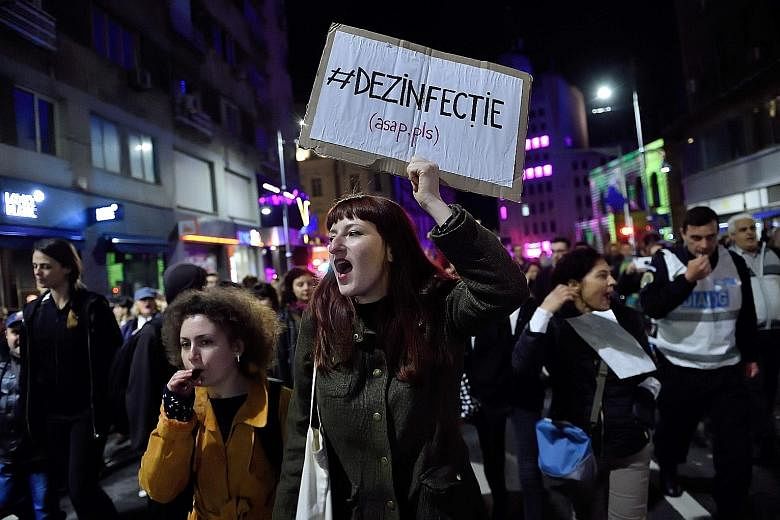WASHINGTON • The International Monetary Fund (IMF) has said bribery sucks away between US$1.5 trillion (S$2 trillion) and US$2 trillion annually around the world, dragging down economies and worsening social services for the poor.
In a new research paper released on Wednesday on the economic impact of corruption, the institution said that bribery, graft and other cheating common in both rich and poor countries limit economic growth and undermine sound government policies.
It said tackling corruption is critical for the achievement of macroeconomic stability, one of the institution's core mandates.
It argues that strategies to fight corruption require transparency, a clear legal framework, a credible threat of prosecution and a strong drive to deregulate economies.
"While the direct economic costs of corruption are well known, the indirect costs may be even more substantial and debilitating," IMF managing director Christine Lagarde wrote in an essay accompanying the paper.
"Corruption also has a broader corrosive impact on society. It undermines trust in government and erodes the ethical standards of private citizens," she added.
The paper, titled Corruption: Costs And Mitigating Strategies, follows Ms Lagarde's warning to Ukraine in February that the IMF would halt its US$17.5 billion bailout for the strife-torn eastern European country unless it takes stronger action to fight corruption, including new governance reforms.
Ms Lagarde was due to participate in a British government-sponsored anti-corruption summit in London yesterday that was to include United States Secretary of State John Kerry and other senior officials.
Extrapolating from World Bank research from 2005, the paper estimated that around 2 per cent of global gross domestic product is now paid in bribes annually.
But it said the indirect costs of corruption are substantially higher, reducing government revenues by encouraging tax evasion and reducing incentives to pay taxes, leaving less money available for public investment in infrastructure, healthcare and education.
While some argue that bribes are simply grease for the wheels of commerce, the IMF said corruption often drives investment away from countries where it is rife and boosts lending costs.
Without naming any particular countries, the IMF said that dependence on non-renewable natural resources can often encourage corruption, as well as conflicts over control of them.
The fund said that in helping its 189 member countries to design and implement anti-corruption strategies, it emphasises the need for both appropriate incentives and deterrents.
The paper said stronger anti-corruption laws and prosecution capacity was needed, but also said that reduced regulation can limit bribery opportunities and provide companies with more opportunity to grow without them.
"Wherever discretion is granted to an official regarding the approval of an economic activity, there is a risk that this discretion will be abused," Ms Lagarde wrote.
REUTERS, AGENCE FRANCE-PRESSE

